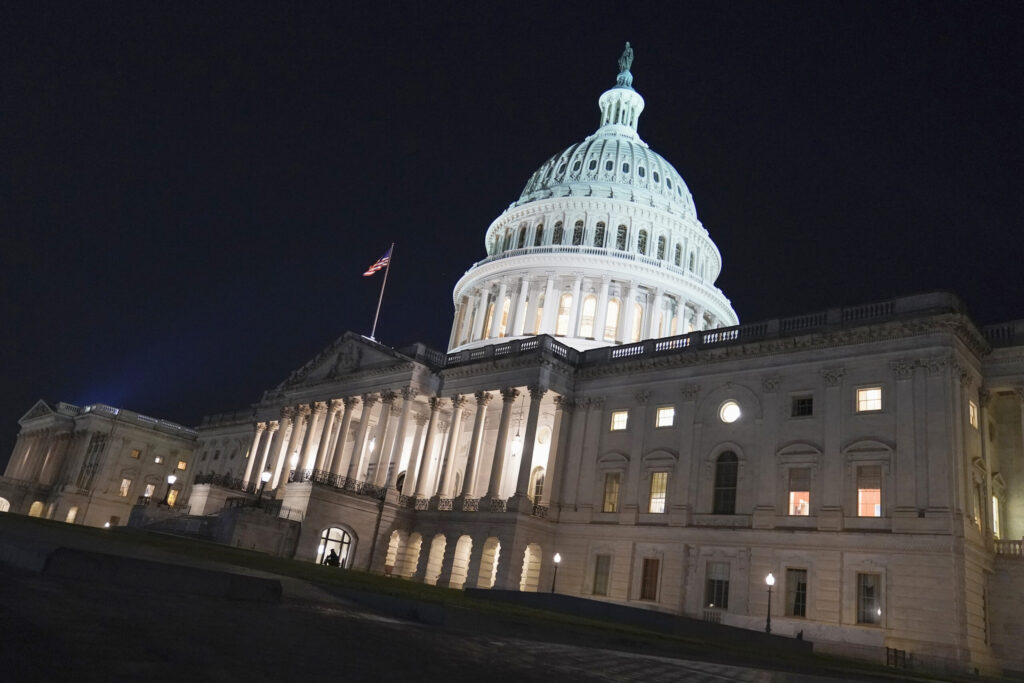As a fierce debate over a stop-gap spending bill unfolded in Congress this week, attention shifted to the thousands of federal employees and programs that could be affected by a government shutdown.
Tens of thousands in Wisconsin faced uncertainty about their paychecks as the holiday season approached.
According to the Congressional Research Service, Wisconsin is home to approximately 18,000 federal civilian workers. Without a spending agreement by midnight Friday, these employees, along with military personnel, faced the prospect of furloughs or working without pay.
The political tussle saw a bipartisan bill to avert a shutdown initially derailed, partly due to social media critiques from Elon Musk and President-elect Donald Trump. On Friday, the U.S. House managed to pass a more streamlined version of the spending bill, as reported by NPR.
Jessica LaPointe, president of AFGE Council 220, representing Social Security Administration workers, pointed out that SSA offices would remain operational, albeit with some services paused, such as income verification. “Most of our duties during a shutdown are fielding questions from the American people,” LaPointe explained to WPR, highlighting the confusion faced by beneficiaries, particularly the elderly and disabled.
LaPointe emphasized the dedication of SSA workers despite living paycheck to paycheck, which adds stress during political standoffs.
“It’s a really stressful and challenging time for federal workers, for Social Security workers on the front lines, who are dealing with public concern over a government shutdown and having to pay out the basic needs of our population while having so much economic uncertainty of our own,” she stated.
The looming shutdown also cast doubt on holiday travel stability, as Transportation Security Administration workers, deemed essential, would continue working unpaid. Darrell English, president of AFGE 777, representing TSA workers in Wisconsin and Illinois, remarked on the financial strain his members endure. “Which makes it even more difficult to stay focused, especially going into the holidays,” English noted. “We never want to have a person have to wonder how they will provide for their families.”
The impact would extend to Wisconsin’s agricultural sector as well. Tyler Wenzlaff, director of national affairs for the Wisconsin Farm Bureau Federation, warned that a shutdown would lead to the closure of Farm Service Agency offices, which are crucial for farmer loans and seasonal planning.
“And so, we really need those offices to be open right now,” Wenzlaff said. “A government shutdown is not ideal when we’re trying to make those decisions right now.”
Wenzlaff also highlighted the pressing issue of Congress failing to pass a new farm bill. The lapse in reauthorizing the 2018 Farm Bill by January 1, 2025, could trigger a return to outdated laws affecting market prices, with potentially severe consequences for consumers.
“So, what that does is grocery prices, a gallon of milk doubles or triples in cost, restaurant cheese prices go through the roof,” he explained.
The potential shutdown may affect Wisconsin’s educational institutions as well. University of Wisconsin-Madison spokesperson Kelly Tyrrell noted that the university is closely monitoring the situation. “We would expect the largest impacts to be on research, since agencies can’t start new programs, issue new grants, or review existing applications during a shutdown,” Tyrrell stated, adding that there might also be visa-related delays for students and staff.
With the House’s pared-down spending bill passing by a wide margin of 366-34, the Senate and President faced a tight deadline to act. Wisconsin U.S. Reps. Tom Tiffany and Glenn Grothman were among those who voted against the measure, according to the official roll call.





